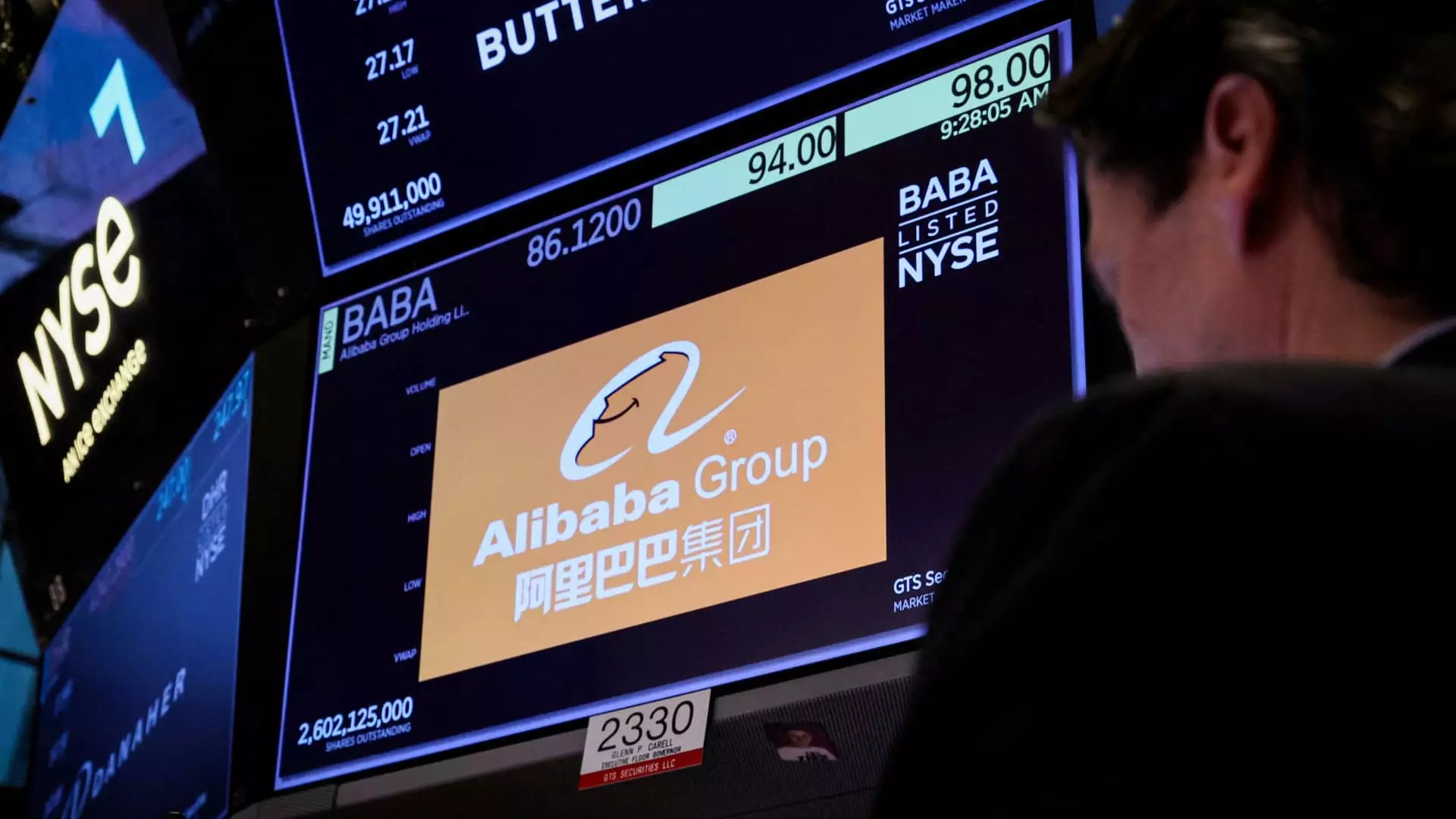In the early months of 2025, Alibaba has emerged as a prominent player in the realm of artificial intelligence, with its U.S.-traded shares skyrocketing nearly 70%. Following a period of political uncertainty that sidelined its founder Jack Ma, the company is now on an upward trajectory, indicating a vigorous rebound fueled by its burgeoning AI initiatives. This article delves into the multiple dimensions surrounding Alibaba’s recent performance, including its financial performance, strategic positioning, and market dynamics.
Alibaba’s recent financial results showcase a remarkable growth narrative, particularly in its AI-related revenue, which has reportedly surged by triple digits for six consecutive quarters. This consistent upwards trend is significant as it demonstrates the company’s capacity to innovate and compete effectively within the technology sector. The introduction of its Qwen AI model has positioned Alibaba as a serious contender against other AI enterprises like DeepSeek, further solidifying its market position. The company’s recent agreement to supply iPhones in China marks its versatility and the appeal of its technological offerings.
The excitement around Alibaba is reflected in various analysts’ projections. Notably, Jefferies has set a price target of $156 for Alibaba shares, signifying an expected increase from the previous closing of $143.75. Interestingly, UBS has reassessed its investment strategy, opting to replace PDD with Alibaba in its model portfolio due to the latter’s strong alignment with AI advancements and quantitative factors. This transition encapsulates investor confidence in Alibaba’s trajectory amidst a competitive landscape rife with uncertainties.
Alibaba’s recent performance becomes even more pertinent when placed against the backdrop of its competitors. Companies like Tencent and Baidu have also made strides in the AI sector, but their growth trajectories differ. For example, Baidu has revealed an 8% increase in its shares this year, alongside a substantial 26% rise in its AI Cloud revenue year-on-year. Comparatively, Tencent has experienced a 24% growth but has not yet reported its latest earnings. Analysts observe that these companies will likely be driven by AI developments, albeit in unique ways, suggesting differing risks and rewards across the board.
While there is palpable excitement surrounding Alibaba, it is vital to note the recent historical context. Just a few months ago, concerns arose due to the market cap of Temu’s parent company exceeding Alibaba’s, prompting fears of a crumbling e-commerce business. However, with recent reports indicating a 5% rise in sales on its platforms, Taobao and Tmall Group also play a vital role in reinforcing Alibaba’s comeback narrative.
Investor sentiment towards Alibaba appears cautiously optimistic, especially as various investment firms have assigned buy ratings, including at least four major entities. However, Morgan Stanley adopts a more conservative stance by assigning an equal-weight rating with a significantly lower price target of $100. This indicates potential risks ahead, including substantial capital expenditures that sharply increased to 11% of revenue in the latest quarter, as opposed to only 3% previously. Such financial maneuvers could weigh heavily on future profit margins.
Additionally, macroeconomic factors must be taken into account as the risks of slower consumer spending loom large on the horizon. The gradual pace of enterprise digitalization presents further challenges, requiring Alibaba to navigate an increasingly intricate economic landscape. Analysts caution that while Alibaba showcases strong innovation and revenue growth, external factors could hinder its ascent.
In sum, Alibaba’s resurgence is emblematic of the broader dynamics within the tech industry, particularly concerning artificial intelligence. While the company’s growth trajectory appears promising, it exists within a complex environment characterized by competition, regulatory scrutiny, and market volatility. Each of these elements will play a critical role in shaping Alibaba’s future, as well as the trajectories of its competitors. For investors and stakeholders, understanding Alibaba’s ongoing evolution is crucial in harnessing the potential benefits and mitigating inherent risks in this fluid landscape. As the world increasingly moves toward AI-driven solutions across industries, Alibaba’s ability to sustain its momentum will determine not only its success but also its standing in the global tech arena.

